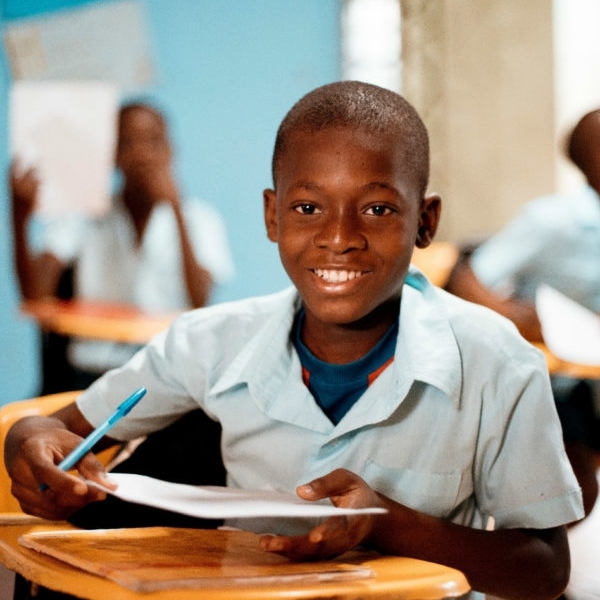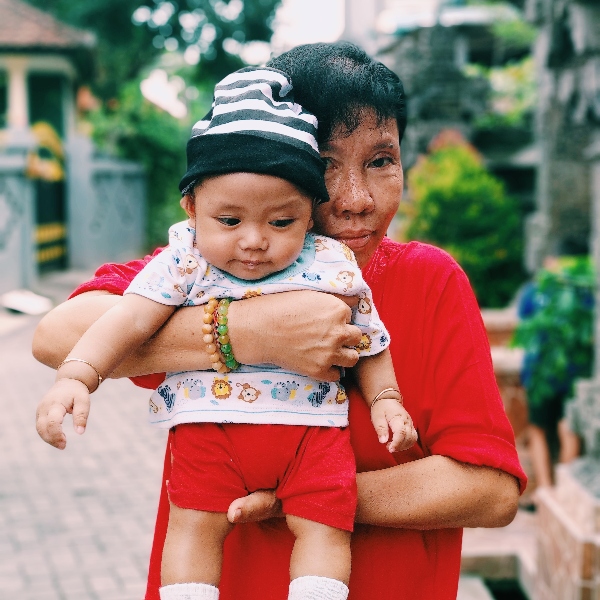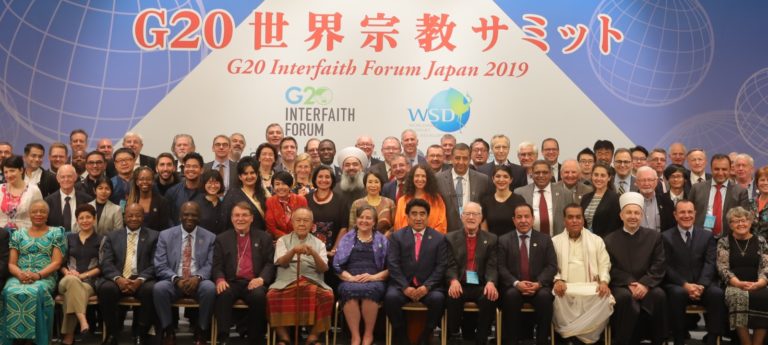Background
The G20 Interfaith Forum (IF20) offers an annual platform where a network of religiously linked institutions and initiatives engage on global agendas (primarily on and including the Sustainable Development Goals or SDGs). Operating by analogy to formal G20 engagement groups, the IF20 is linked informally to the full G20 process.
The annual G20 Leader Summits provide a critical time and place where priority global issues are considered. The formal G20 process has evolved since it was established in 1999 and took on its current form after the economic crisis of 2008, with various platforms (ministerial meetings, engagement groups) that allow different sectors and communities to present ideas and recommendations to global leaders. The IF20 provides an important context for religious voices to contribute meaningful insight and recommendations that respond to and help shape the overall G20 and thus global policy agendas.
The G20 Interfaith Forum builds on the vital roles that religious institutions and beliefs play in world affairs, reflecting their rich diversity of institutions, ideas, and values. These include interfaith and intercultural organizations, religious leaders, scholars, development and humanitarian entities, and business and civil society actors.
Beginning in Australia in 2014, the G20 Interfaith Forum has convened annually in the G20 host country. The Forums have considered wide-ranging agendas, including economic models and systems, the environment, women, families, children, work, humanitarian aid, health, education, freedom of religion or belief, global security, governance, human rights, and the rule of law. The agenda for each Forum is framed taking into account the annual G20 priorities (outlined each year by the host government), together with topics that the various networks of religious actors recommend that the G20 leaders address. The forum has met in Australia in 2014, Turkey in 2015, China in 2016, Germany in 2017, Argentina in 2018, Japan in 2019, Saudi Arabia in 2020, and Italy in 2021.
Our Mission
The G20 Interfaith Forum (IF20) advances global solutions by collaborating with religious thought leaders and political representatives in making contributions to the formal G20 process. Global recognition is increasing for the vital roles faith and religion play in promoting peaceful and harmonious relationships within and between nations. Few examples are widely recognized, however, of the positive contributions faith and religion make to social well-being and to policies that impact national and international communities. The G20 Interfaith Forum provides a platform where such contributions can be shared, highlighted, and advanced.
The Forum features both international opinion leaders—including scholars, lawyers, and politicians—and global interfaith activists for three days of discussion and interfaith dialogue.
In showcasing the broad, global impact of various faith traditions and philosophies from around the world, the Forum fills important gaps in the discussions of the G20 Summits. Social cohesion is strengthened between political representatives and religious thought leaders, and new opportunities are provided for relationship building among all participants.
Objectives of the G20 Interfaith Forum include
1. Exploring the links between economic development and religion and religious freedom through informed, scholarly discussion.
2. Facilitating constructive dialogue between societal leaders in faith, government, business, media, education and other social institutions, on how interfaith resources can enhance social, economic. and cultural policies and programs for the well-being of all.
3. Fostering communication channels between the different faiths and sharing ideas, experiences, and “best practices” in building peace and harmony.
4. Identifying and affirming common values, virtues, and principles among diverse faith and philosophic traditions
A Network of Networks
The G20 Interfaith Forum has consistently sought to build and draw on an inclusive network of networks of public, religious, humanitarian, and academic institutions engaged in a variety of ways in promoting interactions of religious voices, religious studies, and religious communities with the public sector in formulating and implementing global policy initiatives. For some indication of the range of institutions that have been involved in such initiatives, see https://www.g20interfaith.org/historical-support/.
Working Groups
The G20 Interfaith Forum organizes its work through a series of Working Groups which focus on areas of recurring relevance to G20 policy priorities. In particular, these standing Working Groups organize research, analysis, and Forum activities that relate to the United Nations Sustainable Development Goals and other matters of recurring concern. In any given year, additional task force groups may be set up to address issues of particular concern in light of the G20 host country’s priorities or in response to other critical emerging issues. The following standing Working Groups have been established (with sub-focus areas noted in several cases):
1. Reducing Poverty and Inequality (includes job creation and zero hunger)
2. Religion, Health, and Wellbeing (includes COVID-19 responses)
3. Education (includes religious literacy)
4. Gender Equality (includes equal pay issues and trafficking/slavery)
5. Religion and the Environment
6. Religion, Technology, Innovation, Infrastructure, and Media
7. Peace, Justice and Strong Institutions (includes sacred sites, corruption, rule of law, freedom of religion or belief, peace building and diplomacy)
8. Refugees, Displacement, and Migration
9. Disaster Preparedness and Relief, Humanitarian Aid
10. Children and Youth
In addition, an Anti-Racism Initiative has been established to examine how responding to the challenges of overt and systemic racism can be addressed across the entire spectrum of issues being addressed by the G20 Interfaith Forum. More information on the various Working Groups is available here.
Outputs of the G20 Interfaith Forum
Each year, the G20 Interfaith Forum develops policy briefs that are designed to provide substantive input benefiting from insights of a range of religious communities designed to be of assistance to those in official policy-making roles. Recent policy briefs are available here. In addition, each year’s Forum develops prioritized concrete recommendations for those engaged in the G20 process—recommendations that are both designed to be delivered to G20 Summit leaders, but have broader relevance to policy-making at the level of public bodies operating at the international, regional, and national levels and to those concerned with global policy issues in religious, interreligious, and academic settings. Recent recommendation documents are available here.
Disclaimer
While the G20 Interfaith Forum (IF20) has more than a decade of history working with formal G20 structures, at this time it continues to have informal rather than formal status in the overall G20 process.
Address
3220 Cathedral Ave. NW
Washington DC 20008 USA


